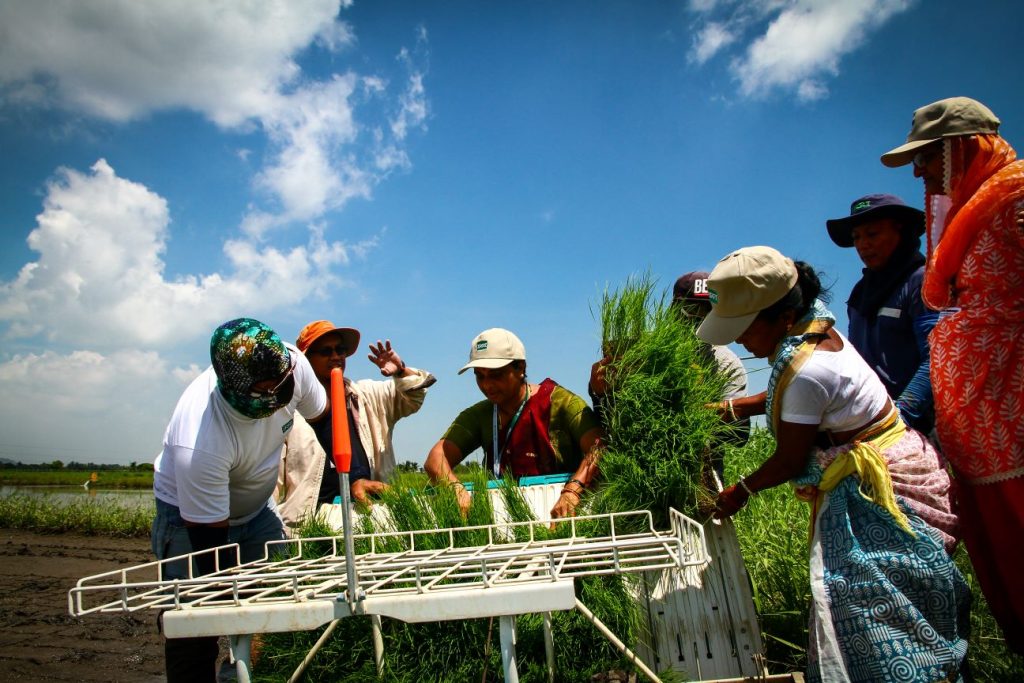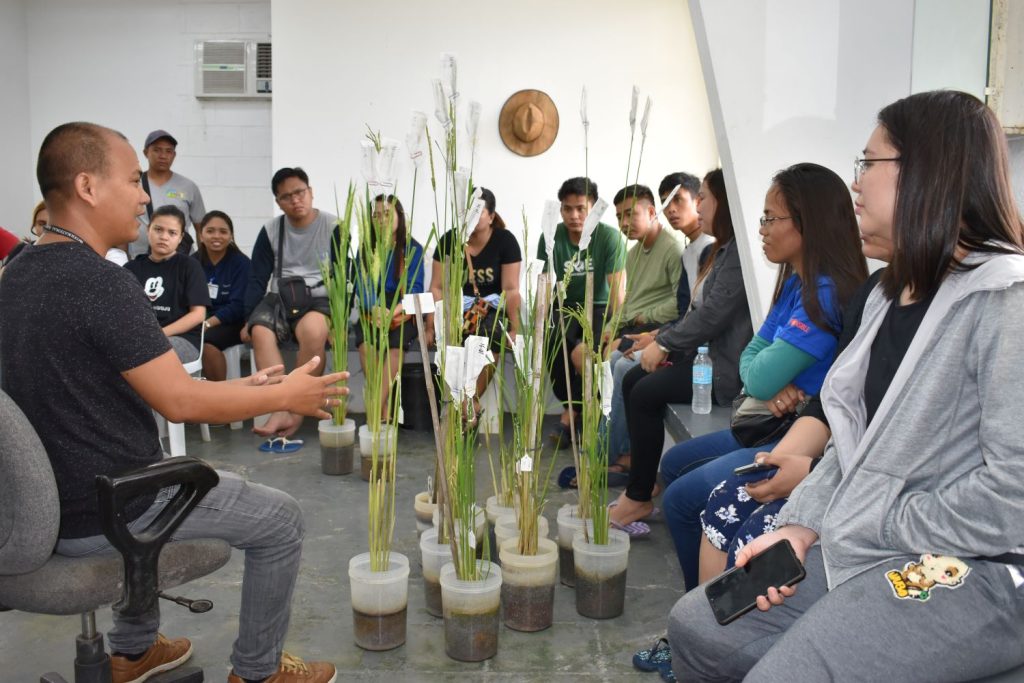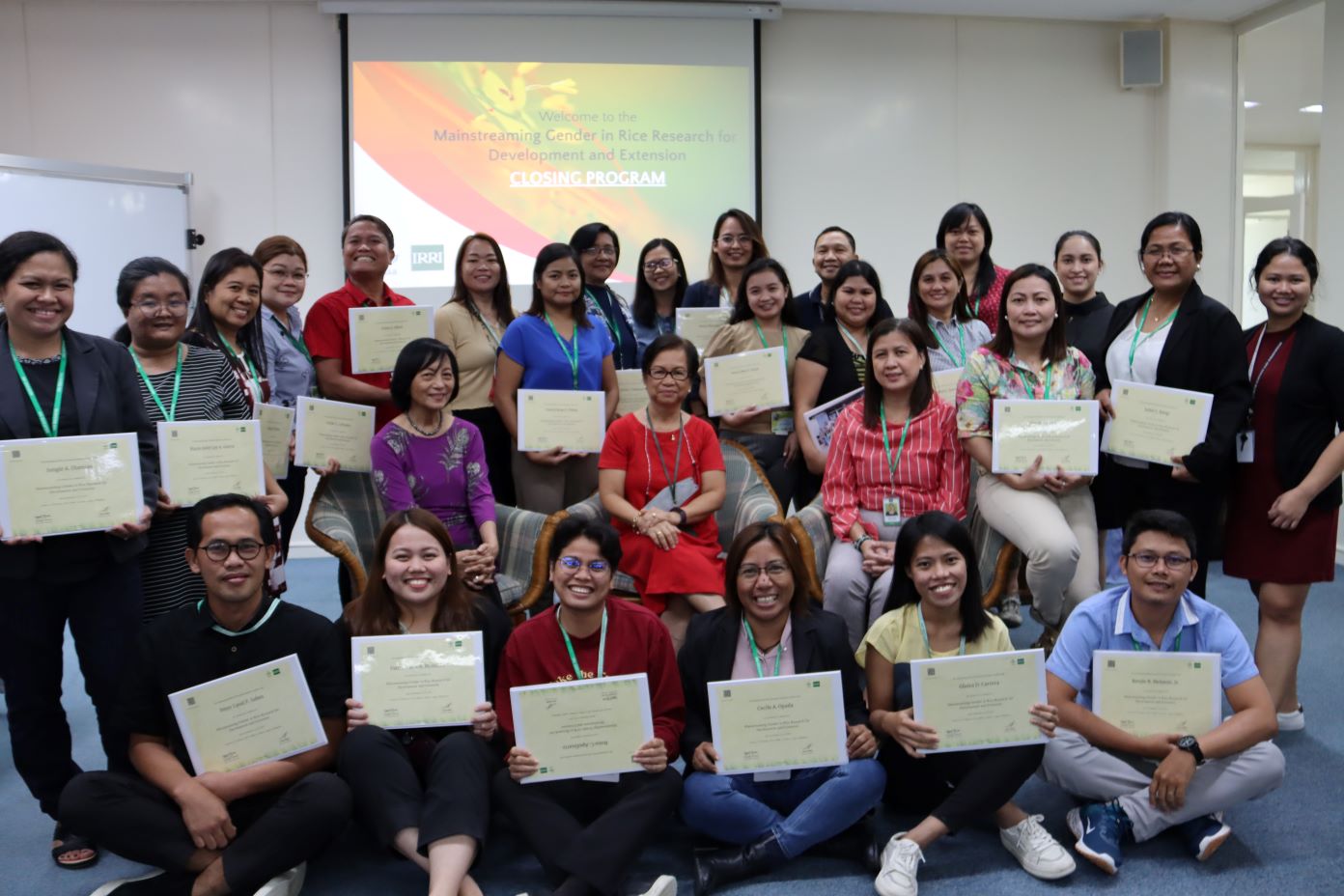Women play a pivotal role in agriculture. In the rice sector, more than 500 million women around the world are engaged in rice cultivation. Similar to men, women are engaged in rice production, postharvest, and processing, yet they continuously face gender-specific obstacles that put them at a significant disadvantage due to limited access to resources, learning opportunities, and farming technologies.
Access to education, whether formal or non-formal, is fundamental in empowering women. Education equips women with the knowledge, skills, and self-confidence to achieve their life goals. However, inequalities remain in educational access between men and women in different parts of the world. According to recent data, 122 million girls remain out of school globally, mostly due to geographic location and poverty. The World Inequality Database in Education (WIDE) and the UNESCO Institute for Statistics reported 10 countries that showcased the inequalities faced by women and girls in education. In these countries, 7 in 10 of the poorest young women of upper secondary school age are out of school, while in Guinea and Mali, almost all poor young women are not in school.
The exclusion of women and girls from education is influenced by various factors which are particularly intensified in rural areas where agriculture serves as a primary source of livelihood. Investing in women’s education has a broader societal impact. According to UNESCO, making sure that women have access to secondary and tertiary education increases their agency and decision-making and elevates their prospects for decent work, thereby fostering economic growth on a global scale.

The International Rice Research Institute (IRRI) believes that women should have access to formal and non-formal education, especially in the field of rice science. As the institute’s educational and capacity-building arm, IRRI Education is at the forefront of making this happen by providing capacity development programs in various disciplines of rice science and technology. IRRI Education encourages the participation of women in its programs, specifically in its training courses and scholarship opportunities.
As one of the flagship programs of IRRI Education, short-term training courses have been offered since the establishment of the institution. These courses involve immersive engagements that focus on research, innovation, and knowledge and skills improvement. Through lectures with experts, hands-on learning, and on-field experiences, these training programs have empowered women, boosting their confidence and morale with their skills and competencies.
Notable training topics include rice breeding technologies, rice production, and postharvest technology, research data analysis and management, information technology, quality seed production, and pest and disease management. In recent years, a growing need to mainstream gender in rice research and technology has been identified. In response to this, IRRI Education designed and developed a training program that aims to educate participants with the importance of addressing social concerns including the gender dimension in agriculture and rice
research for development and extension. This training helps participants to learn how to integrate gender in rice research planning, implementation, monitoring, and evaluation as well as in leadership styles, and in the workplace. Additionally, through this training, they will be able to identify opportunities to contribute to the development of gender-responsive projects/programs.
Since 1964, more than 4,000 women have been trained under IRRI Education’s short-term programs, equipping them with the knowledge and skills in various aspects of rice science and research.

IRRI Education also engages women scholars and the youth through degree and non-degree programs. These programs allow qualified individuals to be involved in IRRI’s research platforms, working alongside world-renowned scientists. Since 1962, IRRI has hosted 5,181 scholars of which, 1,772 are women scholars coming from 92 countries around the world. This number is increasing continuously and is expected to soon close the gender gap. For the past five years, a total of 650 participants have completed various programs with IRRI, including students who conducted their research at the institute as well as oOn-the-Jobon-the-job Training (OJT) and internships. Out of the 650 participants, 52% consist of women.
Rice agriculture is continually facing dynamic and complex challenges and women are bearing the brunt of these. Still, the future holds immense opportunities for women and IRRI is dedicated to providing education and capacity building to continuously empower them to thrive in the dynamic field of rice production and science. However, this feat cannot be achieved by IRRI Education alone. There is a great need for collaborative efforts between the national systems, agricultural institutions, and donor organizations to invest in women to drive transformative change and bring about a brighter future for agriculture.
Echoing this thought, Dr. Anilyn Maningas, Head of IRRI Education shared, “Investing in women almost always creates a ripple effect in the sense that they can be very good role models for the family and the community where they are attached to. This could translate to ensuring a next generation that encourages and supports women that could easily extend to the generation to come”.


